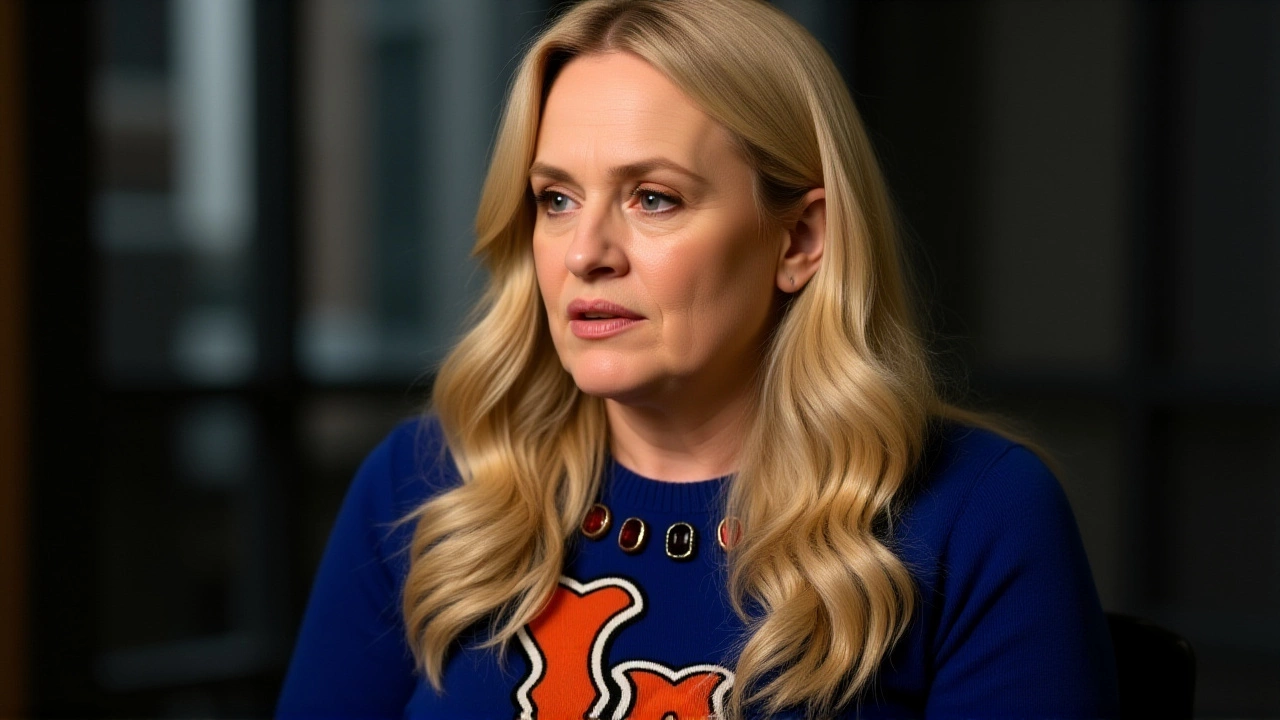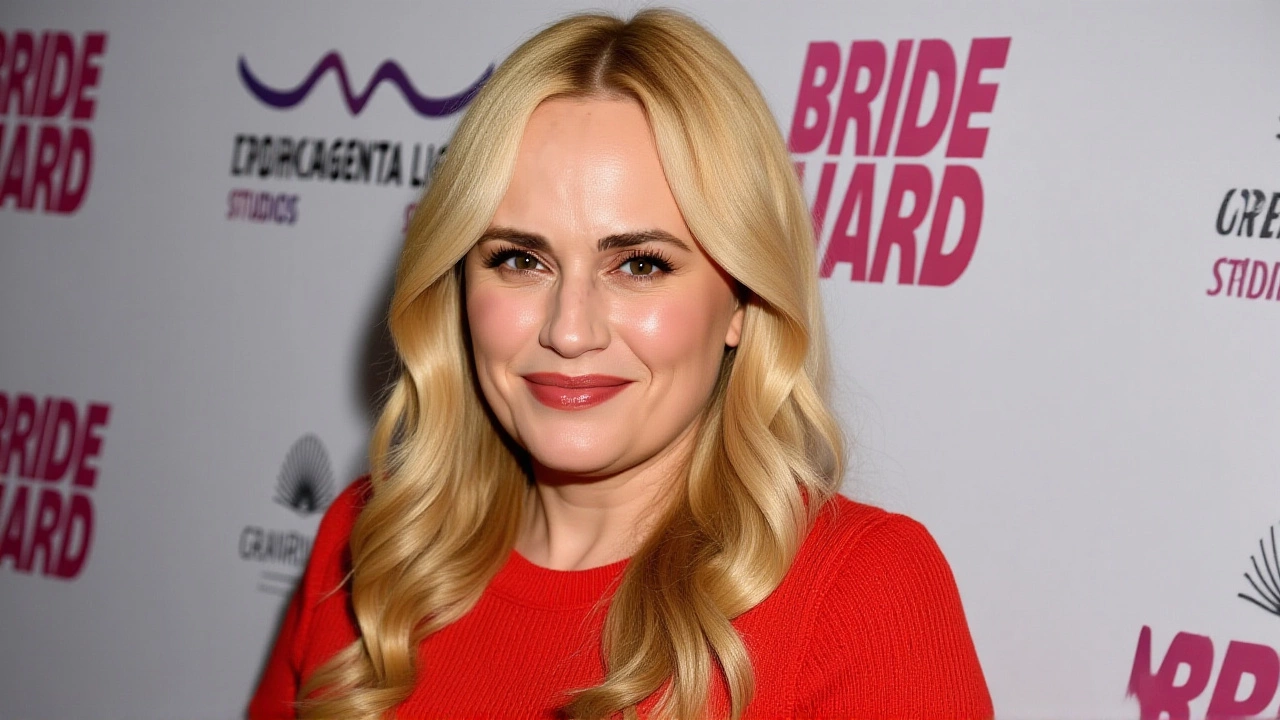Rebel Wilson Denies Role in Smear Campaign Against 'The Deb' Producer Amid Blake Lively Case Link
 Nov, 28 2025
Nov, 28 2025
When Rebel Wilson stepped onto the 60 Minutes set in late 2025, she didn’t just come to talk about her directorial debut — she came to fight for her reputation. Facing explosive allegations that she orchestrated a vicious online smear campaign against Amanda Ghost, producer of The Deb, Wilson flatly denied everything. "I didn’t create those sites. I didn’t pay for them. I didn’t even know they existed until they were published," she told the CBS program, according to reports from Sydney. The denial came amid a swirling legal storm that now ties her to another Hollywood scandal — the alleged targeting of actress Blake Lively.
Here’s the thing: this isn’t just about one producer being dragged through the mud. It’s about how quickly a personal feud can metastasize into a full-blown digital war, with anonymous websites, fabricated accusations, and celebrity names weaponized as ammunition. Ghost, a former president of Epic Records UK and co-founder of Tenpin Records, is accused on these sites of being a "sex trafficker" — and worse, the "Indian Ghislaine Maxwell." The comparison is grotesque, false, and legally dangerous. And according to court documents filed in Los Angeles Superior Court, Wilson’s team may have shown interest in similar sites targeting Lively — sites that surfaced just weeks before the Ghost attacks began.
The Origins of the Legal Battle
The original lawsuit, filed in 2024 by Ghost, along with producers Gregor Cameron and Vince Holden, accused Wilson of making defamatory social media posts claiming they engaged in "inappropriate behavior" toward the film’s lead actress and embezzled funds from The Deb’s $12.3 million budget. Wilson, who stars in and directed the film, counters that the producers mishandled production and silenced creative input. But the allegations escalated beyond words on Twitter — into fabricated websites, deepfake imagery, and coordinated trolling campaigns.
What makes this more than a typical Hollywood spat is the timing. In summer 2025, just weeks after Wilson publicly criticized Ghost on social media, a cluster of anonymous domains surfaced. One site, ghostsinsider.com, featured doctored photos of Ghost alongside headlines accusing her of trafficking minors. Another, indianghislainemaxwell.com, was registered through a shell company in the Cayman Islands — a tactic seen before in other celebrity smear campaigns. Lawyers for Ghost say the sites were designed to destroy her credibility before the film’s premiere.
The Blake Lively Connection
Then came the bombshell: the September 4, 2025 cross complaint. Filed by Ghost’s legal team, it named Melissa Nathan — Justin Baldoni’s crisis publicist — as a new defendant. The document alleges that Nathan, who managed the response to the Lively smear campaign, shared tactics and contacts with Wilson’s team. "Wilson expressed interest in one of those... sites," the filing reads, referring to the Lively-targeted sites that had gone viral in early 2025. The implication? A playbook was copied.
It’s chillingly familiar. In early 2025, Lively was falsely accused of exploiting child actors on the set of It Ends With Us. Dozens of fake Instagram accounts and YouTube videos spread the lie — all traced back to a network of anonymous servers. Now, the same infrastructure appears to have been repurposed against Ghost. "It’s not coincidence," says entertainment lawyer Elena Ruiz, who has handled similar cases. "When you see the same domain registrars, the same bot networks, the same timing — you’re looking at a coordinated effort. The question isn’t whether it happened. It’s who pulled the strings."
Who’s Involved — And Who’s Silent
Ghost, 49, is a respected music executive turned film producer with credits including Blue Valentine and The Theory of Everything. Cameron, 62, co-produced The Full Monty — a film that won an Oscar. Holden, 58, has produced over a dozen indie features. All three have clean reputations. Wilson, 44, is a global star known for her comedic roles and advocacy for body positivity. But her social media presence has become increasingly combative, especially toward those she believes have wronged her.
As of November 26, 2025, Wilson’s publicists have issued no further comment beyond her 60 Minutes denial. Nathan, the crisis consultant, has not responded to requests for comment. Baldoni’s team has distanced themselves from the allegations. Meanwhile, the Los Angeles Superior Court has not set a trial date — a delay that fuels speculation. Legal experts say this could drag on for 18 to 24 months.

Why This Matters Beyond Hollywood
This isn’t just about celebrity drama. It’s about the normalization of digital character assassination. In the last five years, at least seven high-profile entertainment figures have been targeted by similar campaigns — from Grey’s Anatomy cast members to House of the Dragon producers. What’s new here is the cross-pollination of tactics. The same actors, the same platforms, the same lies — recycled across cases. And the victims? Often women with power, who dare to speak out or challenge the status quo.
"These aren’t just rumors," says Dr. Naomi Chen, a digital ethics researcher at UCLA. "They’re engineered. They use AI-generated images, bot amplification, and exploit algorithmic bias. The goal isn’t to inform — it’s to erase. And once the lie is out there, it doesn’t matter if it’s proven false. The damage is permanent."
What’s Next?
Wilson’s legal team is expected to file a motion to dismiss the cross complaint in early 2026, arguing lack of direct evidence. But prosecutors are reportedly seeking server logs, domain registration records, and internal communications from Wilson’s production company. If they find a single email, text, or encrypted message linking her to the sites — the case could shift dramatically.
Meanwhile, The Deb — Wilson’s passion project — remains unreleased. Originally slated for a late 2025 premiere, distributors are now hesitant. "No one wants to be associated with this," said one executive who spoke anonymously. "It’s not about the movie. It’s about the chaos around it."
Frequently Asked Questions
How did the websites targeting Amanda Ghost get created and spread?
Court filings suggest the sites were built using anonymous domain registrars and bot networks that amplified content across social platforms. One site, indianghislainemaxwell.com, was registered through a Cayman Islands shell company, a common tactic to avoid traceability. The content included AI-generated images and fabricated quotes, then pushed through coordinated Twitter/X and Instagram campaigns targeting entertainment journalists and influencers.
Why is Melissa Nathan connected to both the Blake Lively and Amanda Ghost cases?
Nathan, Justin Baldoni’s crisis publicist, reportedly advised Wilson’s team on handling negative publicity after the Lively smear campaign went viral in early 2025. The cross complaint alleges she shared contact lists and platform strategies with Wilson’s inner circle. While Nathan denies direct involvement, investigators are reviewing her communications with Wilson’s producer, Vince Holden, during summer 2025.
What’s the potential legal consequence for Rebel Wilson if she’s found responsible?
If proven, Wilson could face damages exceeding $15 million — including punitive awards for intentional infliction of emotional distress. Beyond finances, her reputation as a public advocate for women could be irreparably damaged. Criminal charges for cyber harassment are also possible under California Penal Code 653.2, especially if evidence shows she directed or funded the sites.
Is there any evidence linking Rebel Wilson directly to the websites?
As of now, no smoking gun has been made public. But investigators are analyzing metadata from the sites, financial transfers to domain registrars, and internal messages from Wilson’s production team. The timing is suspicious: Wilson publicly criticized Ghost on June 12, 2025, and the first site went live on July 3, 2025 — a 21-day window that lawyers argue is too precise to be coincidental.
Why hasn’t the film The Deb been released yet?
The film’s distributor, A24, paused its rollout after the cross complaint surfaced in September 2025. While the movie has completed post-production, executives fear backlash from audiences and critics if it’s released amid ongoing allegations. Internal emails obtained by Variety show concerns about "reputational contamination" — a term rarely used outside legal circles.
What does this mean for other filmmakers facing similar disputes?
This case sets a dangerous precedent: that personal conflicts in Hollywood can escalate into digital warfare with real-world legal consequences. Filmmakers are now being advised to document all communications and avoid social media tirades. Some studios are even requiring digital ethics training before greenlighting projects. The message is clear: in the age of AI and viral lies, your words — and your silence — can become evidence.